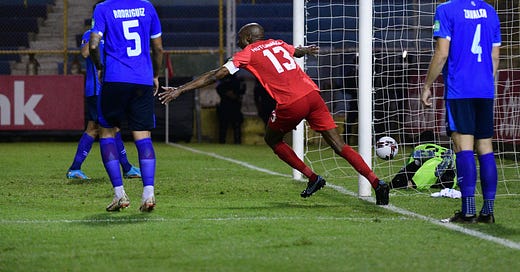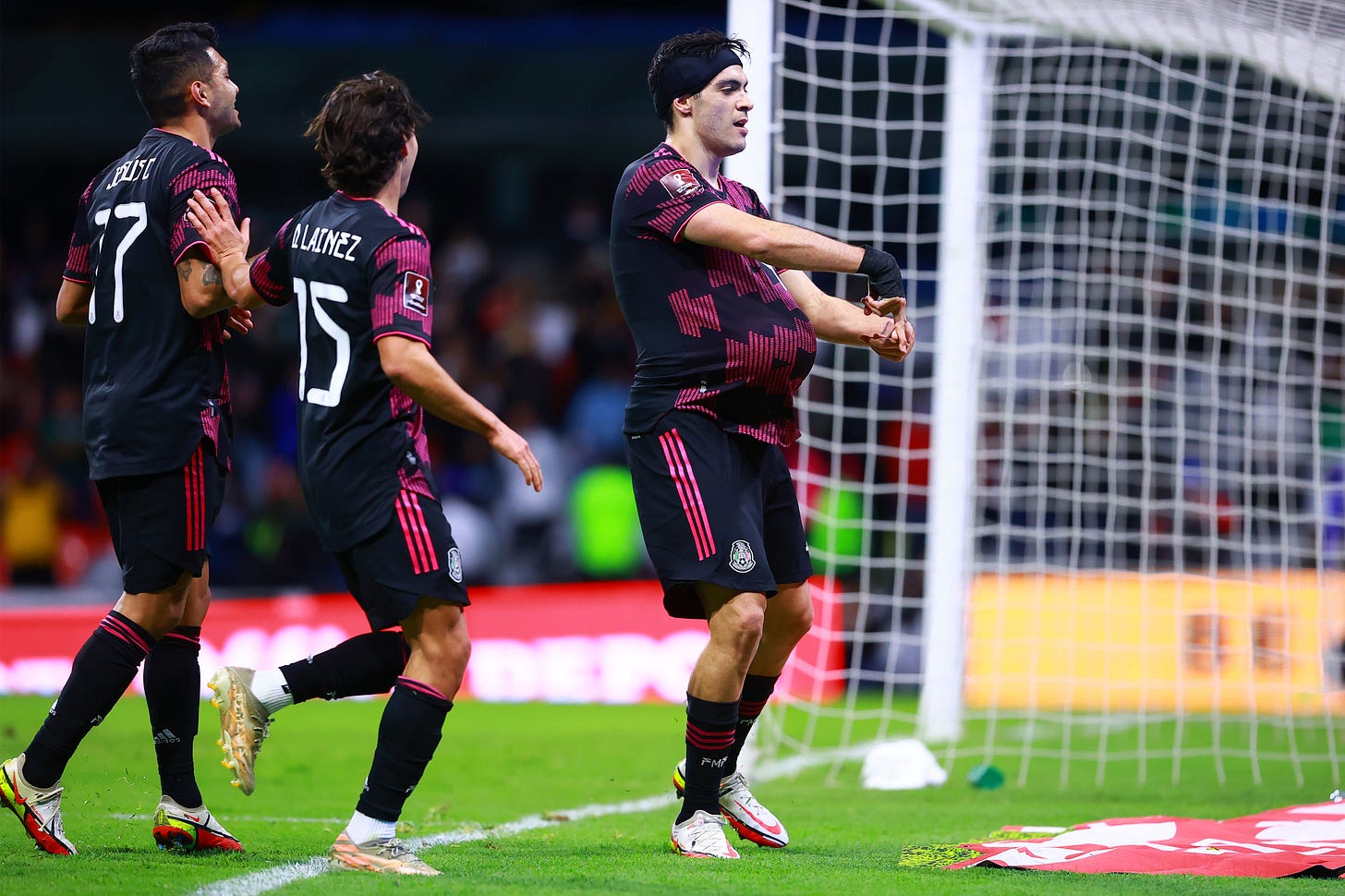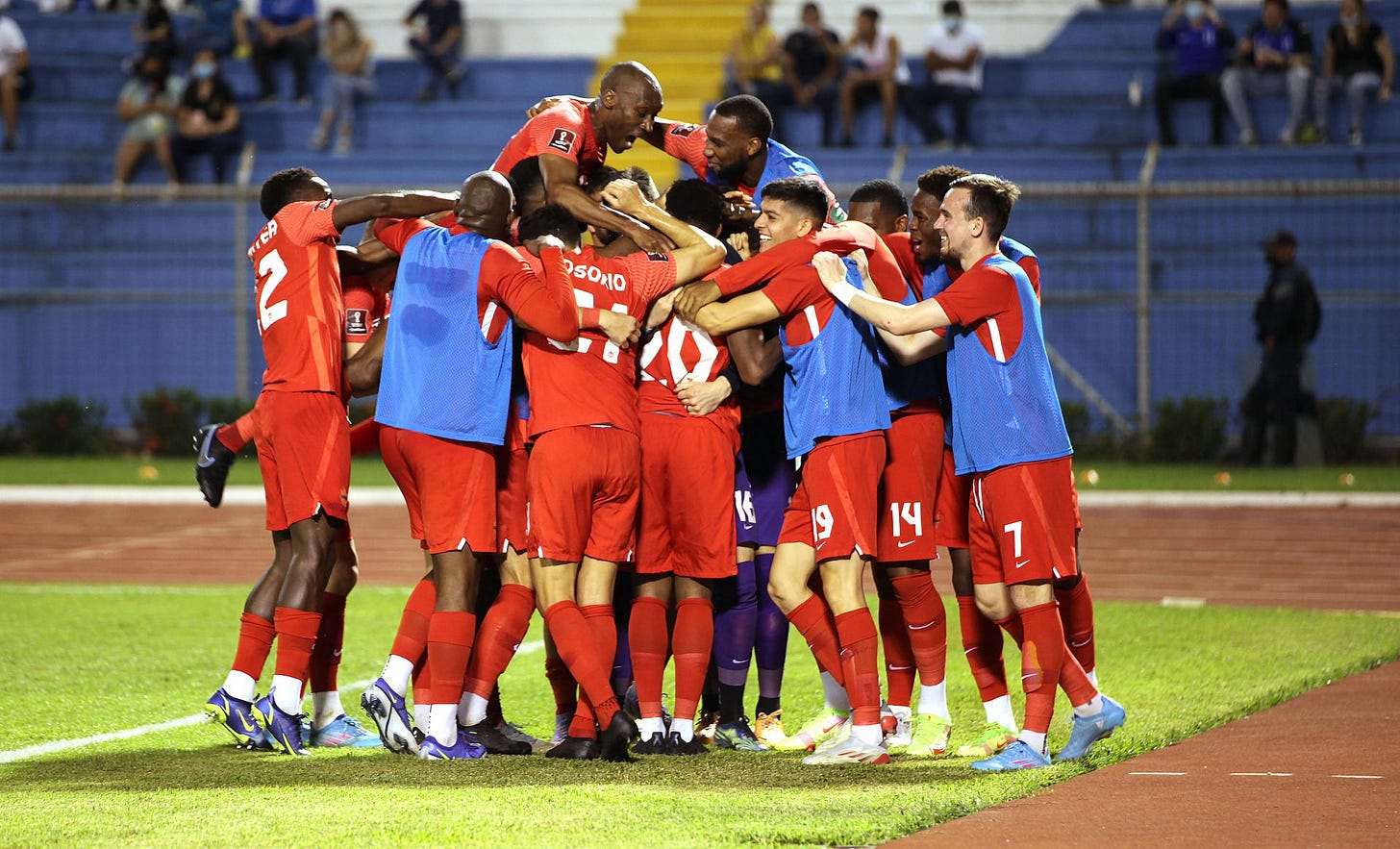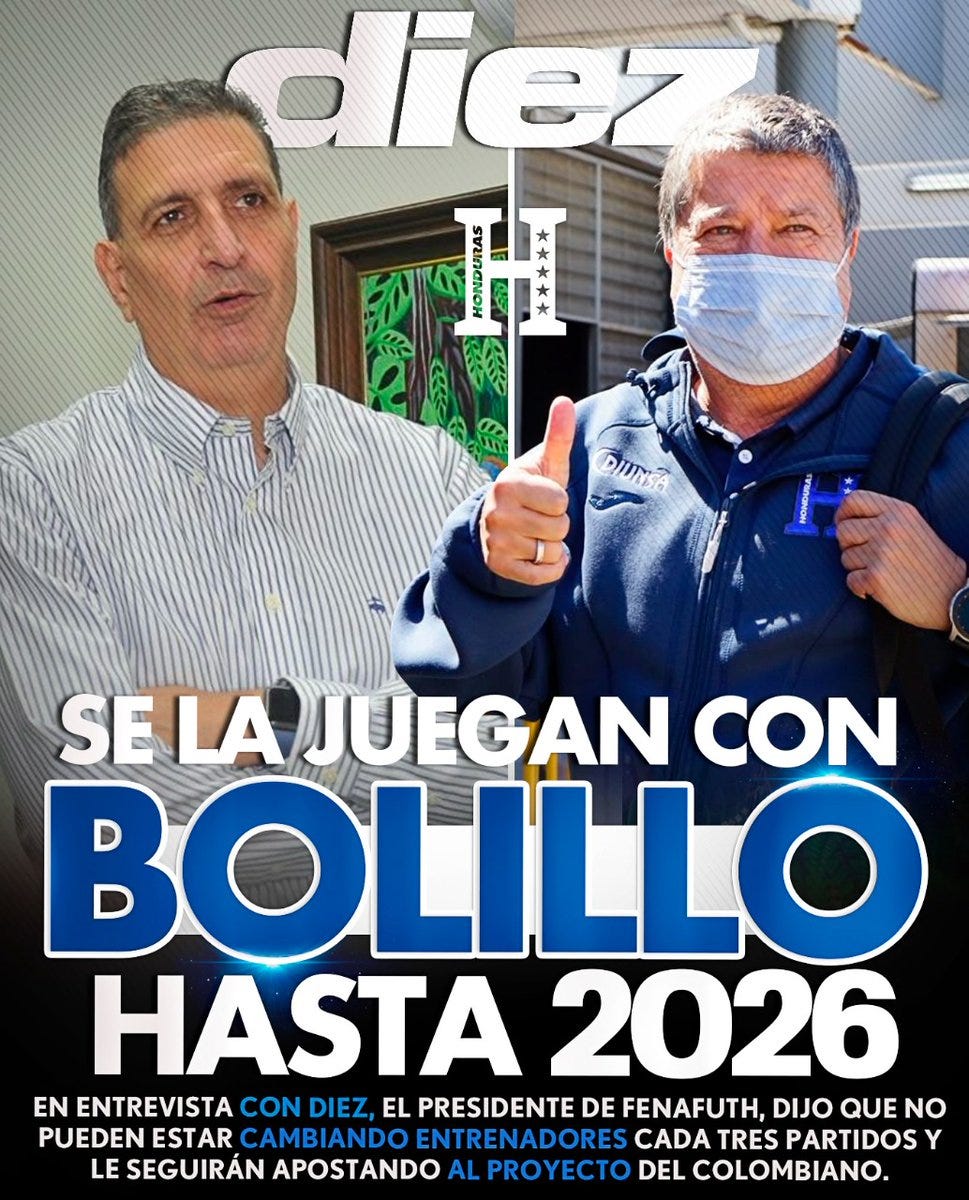🧑🎓 What we learned from January's World Cup qualification matches
And February's. It's setting up for a great finale.
The picture is much clearer, but still nothing is decided.
We head into the final three matchdays of World Cup qualification in the Concacaf region unsure which teams will go to the World Cup, and a true fight is developing for fourth place and the intercontinental playoff spot that comes with it.
What did we learn from the January and February WCQ matches?
Two quick announcements before we get rolling:
I had a piece run this week at The Athletic. I’ve wanted to write about Bryan Moya, a Honduras international currently barred from entering the United States after spending time here without the proper documents, for some time. I finally got the chance and think it turned out well.
Hopefully you’ll enjoy and let The Athletic know you want more Concacaf coverage. Some of you already have in the comments, and I appreciate it!I’ll fully announce the details next week, but we’re going to have an extremely cool giveaway that involves vintage shirts. All you’ll need to do to enter is be a premium subscriber. If you are, you’re entered. If you’re not, you can get a jump start here and get deeper coverage of the Concacaf region in addition to being entered in this mystery drawing:
On to what we learned this window:
It’s all about the points
I’ve been going back and forth about which team was less inspiring in earning seven points this FIFA date: Mexico or Costa Rica?
Mexico had far more expectations coming in, not only being in the automatic qualification places (and being Mexico) but also having two home matches. Costa Rica probably looked the worse of the two teams over the three windows, playing better than Mexico - and complicating this debate - in the teams’ head-to-head meeting but winning despite looking second best to both Panama and Jamaica.
Here’s the thing for these teams and for the United States, which finished the window with six points:
It doesn’t matter.
Yes, Mexico manager Tata Martino has to worry about getting to the fifth game at the World Cup after the March games, but first he has to get to the World Cup.
Sure, Costa Rica needs to figure out how do stop crosses coming in from wide positions and how to generate attack beyond getting it to Joel Campbell and hoping something cool happens, but first Los Ticos have to get to the playoff and then the World Cup.
“The win is welcome for what it means being in the last stretch of qualification and because, without a doubt, a new World Cup is coming up in the second half of the year,” Martino said after a labored 1-0 win over Panama. “This same win also helps us get back confidence, more than anything for this group of players, to be able to play with less tension. That’s why we put so much value on the three points.”
In other words, there are no style points in qualification. This isn’t rugby where teams are pushing for bonus points or figure skating where it’s up to a panel of judges. The game, at its base, is simply. Who scored more goals? That’s who won.
It’s easy to lose sight of that, and it remains important to analyze, critique and evaluate.
While coaching staffs for Mexico, Costa Rica and the U.S. will be doing just that even as you read these words, they’ll also rest easy in knowing they did what they needed to do this window - if only just.
Canada is going to the World Cup
Are there scenarios in which Canada still could end up not going to the World Cup? Yes. Are those scenarios going to happen? No.
I’m actually fascinated to see if we get any celebration shots when Canada clinches in March, but there should be dancing in the streets of Toronto, Vancouver and Montreal (and, of course, WCQ sites Edmonton and Hamilton) in late March.
They got to the verge of qualification with a streak-busting nine-point window. The first win in Honduras since 1985, first win over the U.S. in World Cup qualification since 1980 and first win in El Salvador since 1996.
John Herdman’s meticulous planning for the squad aligned with the best generation of Canadian players. Canada also is benefitting from playing some of the ‘minnows’ in the early rounds of World Cup qualification, coming together as a group far more often than the squads given a bye into the final round.
It might not have been fun to play Bermuda and Aruba in the first round, host Suriname in the final game of that round in a win-or-go-home matchup or travel to Haiti in the second round, but it’s made Canada tougher.
“The team is fearless. There’s nobody that we fear now. We know that we can go up and play against anybody in this region,” midfielder Atiba Hutchinson said after the win in El Salvador.
And, look, there’s also been some dumb luck.

Even on that goal, though, it’s the nearly 40 Hutchinson is pumping his legs to sprint into the box and throwing his body at a Cyle Larin cross to get something on it. He’s been around long enough to know that if you win the ball in the box, good things happen.
Good things are happening for Canada, and it’s difficult not to look at them as a ‘team of destiny’ with things simply going right. Of course, for Herdman, he’s concerned with being the ones who determine what comes next.
“Destiny is in our hands, it’s where we wanted to be at this stage,” the manager said. “We’ll keep believing. Our country is behind us.”
Projects are the answer, but it has to be the right project
Looking at what Canada has done and what other countries in the region continue to do, it’s clear that a long-term project can be the key for national teams to reach their goals.


“We have to take the example of Canada, take the example of the U.S. and just rebuild the squad,” Jamaica manager Paul Hall said after the 1-0 loss to Costa Rica. “We’ve got to take a look at who’s performed, who hasn’t performed and we have to rebuild. That will be my recommendation.
What’s also clear, however, is that the wrong project can be very costly, as can switching trains mid-journey and trying to make a train with momentum behind it go another direction (although if the train is going the entirely wrong direction, it’s often worth the hassle).
Jamaica and Honduras both are eliminated from the World Cup and currently are being led by managers who took over during the final round of qualification.
Each manager wants to continue on.
"I do (want to stay),” Hall said after a window that saw the Reggae Boyz lose three straight. “I was brought here to try and see if we could qualify the team, but also for the long term to affect the players and try to get them up to a certain level and standard - of which we have many good young players. So I hope I'm part of it. It's a painful process to lose three games on the spin in the World Cup qualifiers, but we have got to look forward and we have got to press on."
Hall at least was able to put together something that resembled Jamaica’s best XI and avoided some of the mistakes made by Tappa Whitmore, his predecesor upon whose staff Hall worked before taking the top job.
While Hall’s status remains a question, Honduras manager Hernan “Bolillo” Gomez got an endorsement from Honduras FA president Jorge Salomon this week.
“We have an exit clause with him but I insist, the most important thing is that in the national team we have a person who knows about soccer, who has been to World Cups with a professional coaching staff,” the official said. “Right now, we're patient. We're suffering from illness that go beyond what the doctor who is involved in this stage can solve.”
Gomez hasn’t done much to turn things around but can point to his record getting three teams to the World Cup. He had more time with any of those three than he has with Los Catrachos, and the generation coming up after last summer’s Olympics does show promise. Frankly, though, I’m surprised he wants to stick it out.
Will he stay interested? Will he get results? Those are the questions that remained to be answered.








